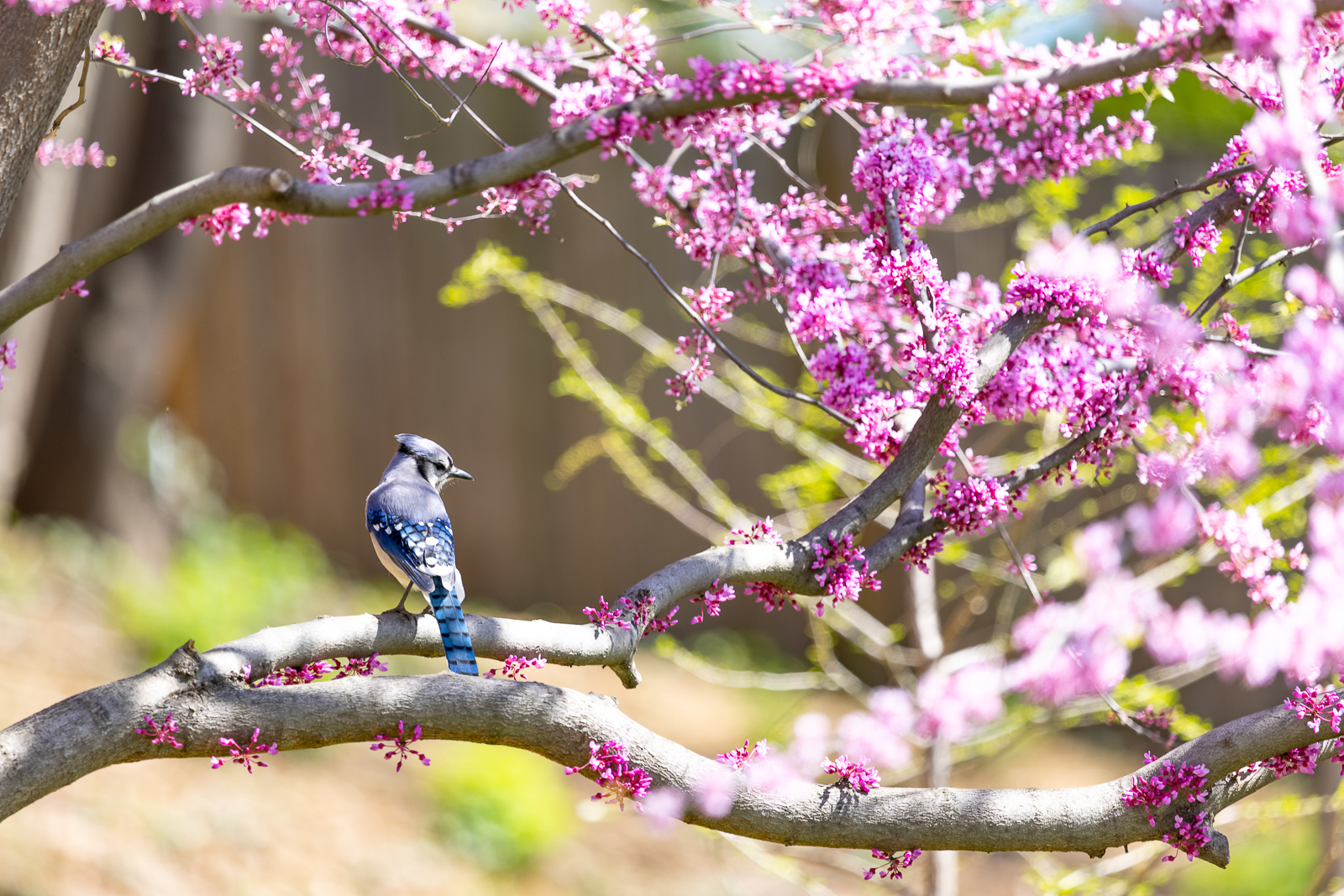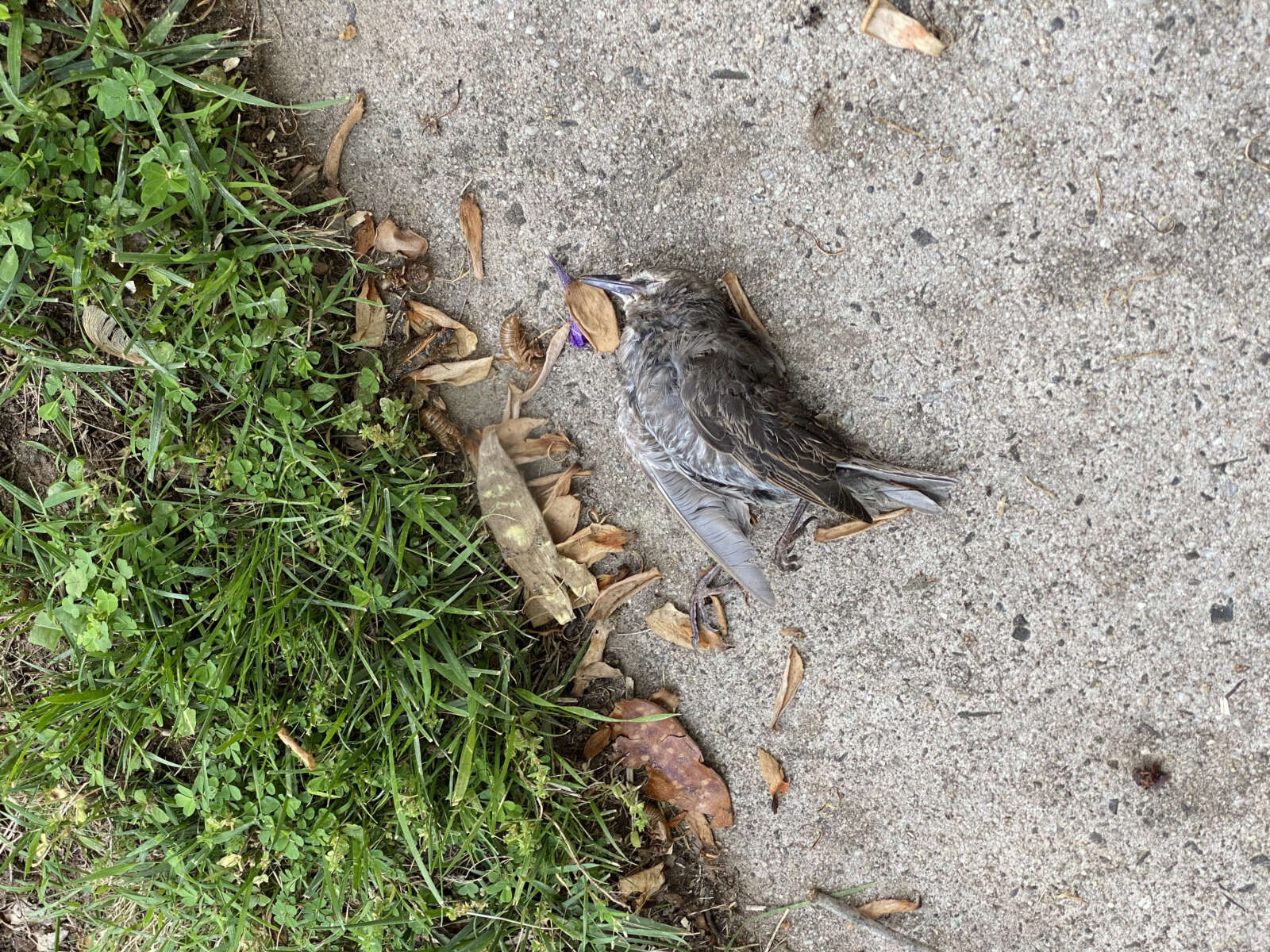The Animal Welfare League of Arlington is advising residents to remove their bird feeders while officials still try to figure out why birds across the region are getting sick and dying.
“We are asking Arlington Co (and DMV) residents to bring their bird feeders inside for the time being. Due to the unknown illness in local birds, we are looking to take as many precautions as possible to keep illnesses from spreading (and bird feeders can be a common source of illness),” reads the social media post from late last week.
Local authorities in Virginia, Maryland, D.C., and West Virginia remains stumped as to why so many birds have turned up dead in recent weeks. Reports from across the region cropped up in late May about birds littering local roads and sidewalks.
Additionally, these reports do not seem to be decreasing and are remaining steady, writes Megan Kirchgessner, State Wildlife Veterinarian with the Virginia Department of Wildlife Resources, in an email to ARLnow.
Symptoms usually include the swelling of eyes, a crusty discharge, and neurological signs, according to a Virginia DWR statement from Friday (June 11).
One theory is that it’s related to the emergence of the cicadas and the use of insecticide. Another is that it’s a bacterial disease. But, as of now, there’s nothing conclusive.
“We have continued to send out specimens for further testing but have not received any conclusive test results,” writes AWLA Animal Control Chief Jennifer Toussaint in an email to ARLnow. “We will immediately alert the public once we know what is going on and are making these additional suggestions just to lessen the possibility of this illness spreading from bird to bird at this time.”
Kirchgessner is also asking residents to remove their bird feeders and baths.
“Although we are not able to confirm at this time that an infectious disease is the cause of this mortality event, we have recommended removal of bird feeders and baths to be on the safe side,” Kirchgessner writes to ARLnow. “Feeders congregate birds and will facilitate transmission of disease from sick to healthy birds.”
DWR’s statement additionally advises residents, if removing a feeder or bath is not possible, to clean it with a 10% bleach solution.
There are still no definitive lab results as to the cause, but “at least three wildlife health labs are involved so hopefully we will have results soon,” Kirchgessner notes.
The labs that are investigating include the USGS National Wildlife Health Center, the University of Georgia Southeastern Cooperative Wildlife Disease Study, and the University of Pennsylvania Wildlife Futures Program.
Both AWLA and DWR are reminding residents to avoid handling the dead birds without gloves, to keep pets away from them, and to report incidents to either DWR or AWLA.
“We are very saddened by this ongoing issue and are hopeful for more finding soon,” said Toussaint. “These birds are federally protected for a reason, they are a national treasure and vital to our ecosystem.”
Photo (1) courtesy of Erinn Shirley/Flickr




